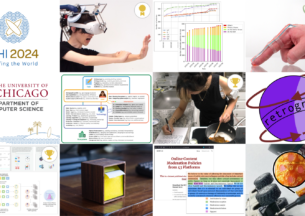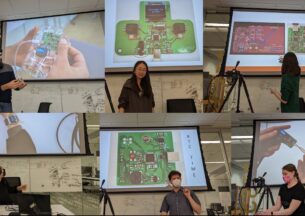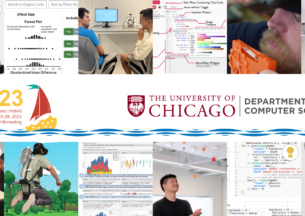Yuxin Chen (Caltech) - Interactive Learning and Decision Making with Machines and People
Interactive Learning and Decision Making with Machines and People
How can we intelligently acquire information for decision making, when facing a large volume of data? In this talk, I will focus on learning and decision making problems that arise in robotics, scientific discovery and human-centered systems, and present how we can develop principled approaches that actively extract information, identify the most relevant data for the learning tasks and make effective decisions under uncertainty. As an example, I will introduce the optimal value of information problem for decision making, and show that for a large class of adaptive information acquisition problems that are known to be NP-hard, one could devise efficient surrogate objectives that are amenable to greedy optimization, while still achieving strong approximation guarantees. I will further talk about a few practical challenges in real-world decision-making systems such as complex constraints, complex action space, and rich interfaces. More concretely, I will elaborate on how to address these practical concerns through a variety of applications, ranging from sequential experimental design for scientific discovery to interactive machine teaching for human learners.
Host: Rebecca Willett
Yuxin Chen
Yuxin Chen is an assistant professor of computer science at the University of Chicago. Previously, Chen was a postdoctoral scholar in the Department of Computing and Mathematical Sciences at the California Institute of Technology (Caltech). Prior to Caltech, he received his Ph.D. in computer science from ETH Zurich in 2017. His research interest lies broadly in probabilistic reasoning and machine learning. He was a recipient of the Google European Doctoral Fellowship in Interactive Machine Learning, the Swiss SNSF Early Postdoc.Mobility Fellowship, and the PIMCO Postdoctoral Fellowship in Data Science. He currently focuses on developing interactive machine learning systems that involve active learning, sequential decision making, interpretable models and machine teaching.














